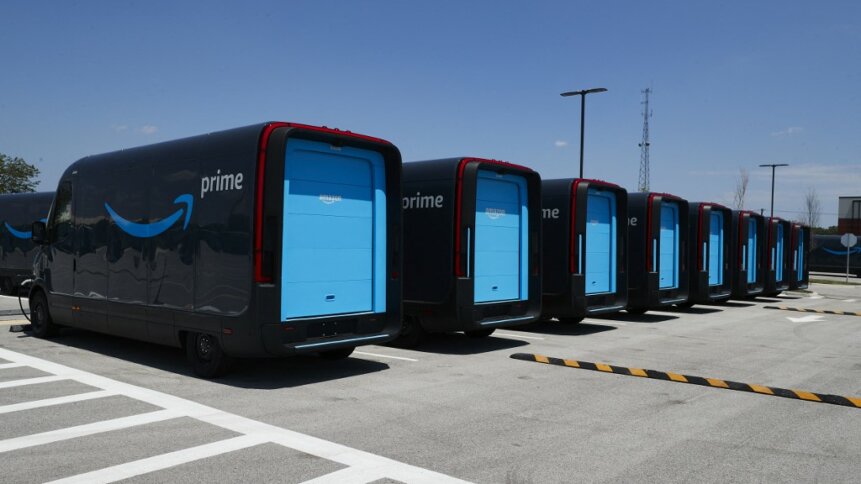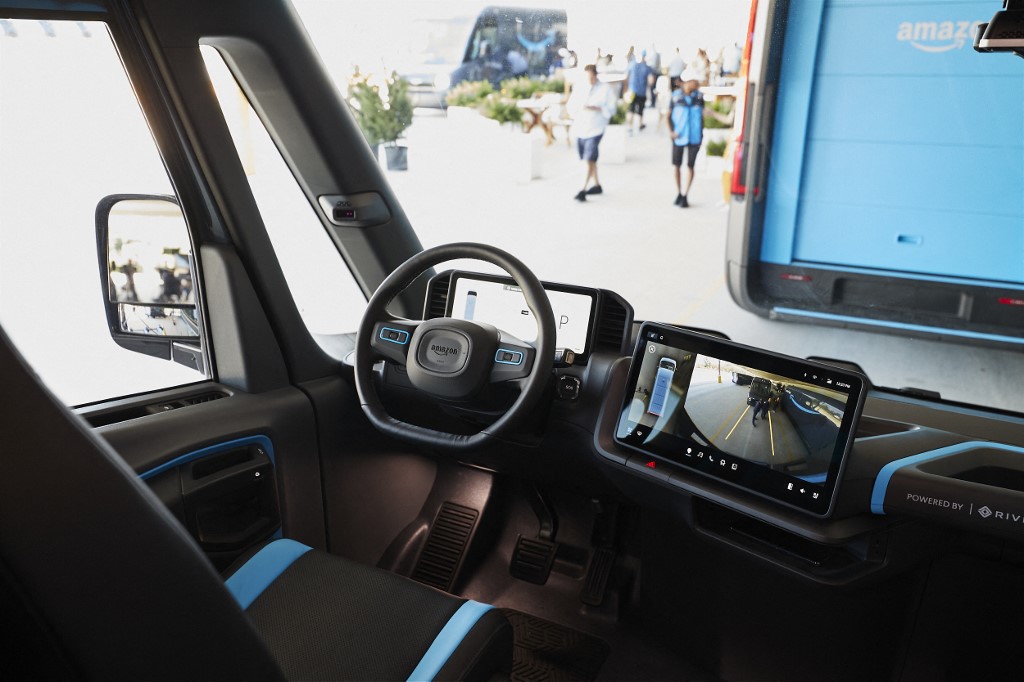Amazon chases greener supply chains with billion-euro electric fleet

Amazon announced early this week that it was forging ahead with its carbon-neutral pledge, with electric vans, trucks and low-emission package hubs across Europe, ‘greenifying’ its supply chain and logistics operations on the continent with an investment commitment of over one billion euros ($974.8 million) in the next five years.
One of the largest and most recognized e-commerce and fulfilment companies, Amazon could set the final-mile supply trend in the coming years with its electric fleet. It was 2019 when Amazon first made The Climate Pledge, ahead of many other industry leaders, to reach net-zero carbon emissions by 2040. That’s a full 10 years ahead of the target for most signees of the Paris Agreement in 2018, and the guarantees made by the attendees of the COP26 climate conference in February 2022.
With one of the most sizable self-owned last-mile fleets in the world, the online selling and delivery giant also said that it hopes its giant investment in Europe will encourage innovation across the transportation sector. Reuters further quoted Amazon saying it will invest in thousands of electric charger infrastructures throughout Europe over the next five years.
The billion-euro investment will more than triple its electric van fleet in Europe, up from 3,000 presently to more than 10,000 vehicles by 2025. Amazon did not disclose what share of its current fleet was electrified, but did clarify that the 3,000 zero-emission vans delivered in excess of 100 million packages in 2021.

Interior view of an electric van during a launch event at an Amazon facility. (Photo by Mustafa Hussain / GETTY IMAGES NORTH AMERICA / Getty Images via AFP)
Along with lighter, quicker deliveries via vans, Amazon added it hopes to acquire more than 1,500 electric trucks to be used for “middle-mile” shipments to package hubs in the same time frame. And speaking of packaging hubs, the e-tailer is making use of those centrally located waypoints to trial alternative, emission-slashing delivery methods such as electric cargo bikes and on-foot delivery. Amazon says it will double its European “micro-mobility” hubs network as well, up from the 20-plus cities in service today, in line with its plans to achieve net-zero carbon emissions by 2040.
The company has been following through with a lot of its pledges, and has been making inroads that might see it actually achieve its ambitious ‘carbon-neutral by 2040’ target – a full decade ahead of many of its ‘Big Tech’ peers. Backing up its electric fleet stance, Amazon confirmed that it had ordered 100,000 electric delivery vans from electric vehicle startup Rivian, to join its fleet by 2025.
Amazon had previously sunk a lot of money into Rivian, one of the preeminent manufacturers of electric long-haul heavy transport in the US. Rivian electric vans have been part of the Amazon last-mile fleet on US roads since 2021, and along with the latest 100,000 ordered, the tech behemoth also has orders out for more than 1,800 electric vehicles from Mercedes-Benz Vans. These include 600 mid-sized eVito electric vans and at least 1,200 vehicles of the larger-sized eSprinter electric van.
About a month after the Mercedes-Benz orders, Amazon said it was also buying 10 electric trucks from Quebec, Canada-based Lion Electric. A mix of startups and established auto manufacturers are competing to produce enough electric trucks and vans, as demand continues to grow from major logistics players, like global package delivery firms United Parcel Services (UPS) and FedEx.
Most of these companies have their own zero-carbon emission targets to hit, and have committed to buying larger quantities of electric delivery transportation in the near to long terms, but just like Amazon, they are facing shortages of ready vehicles that could help them accelerate their drives to be carbon neutral in shorter time frames.










